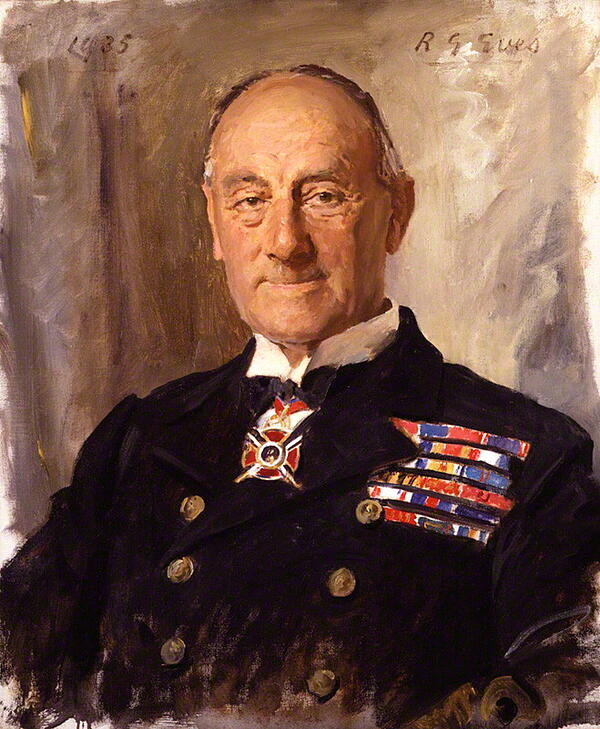Admiral John Jellicoe
Admiral John Jellicoe was born in Southampton in 1859 and joined the Royal Navy in 1872. He didn’t take long to rise up the ranks, being promoted to captain in 1897, vice-admiral in 1910 and admiral in 1915.
Jellicoe showed such promise that he was specifically trained to take command of the Royal Navy during the war with Germany, which many had considered to be inevitable as 1914 progressed.
As promised, Jellicoe was appointed commander-in-chief of the Grand Fleet as World War One broke out. He enjoyed a couple of small victories at the start of the war - including the battle of Heligoland Bight in August 1914 and the battle of Dogger Bank in January 1915 - further cementing his reputation and confirming he had been the right choice for his position.

The next test Jellicoe would face was the battle of Jutland in 1916, which proved to be the only major naval battle of World War One that involved Britain’s naval forces.
During the battle, the Royal Navy sustained significant losses - more than their German counterparts - but they were considered to have one the battle as it resulted in the German fleet never again being seaworthy during the war.
Despite this, Jellicoe was criticised for his tactics, which some had considered too cautious and blamed for the number of casualties - both in terms of ships and men.
Although many considered him to have caused these losses, Jellicoe was still given the title of First Sea Lord from 1916 to 1917, and as the war drew to a close he was named chief of naval staff. Once the war was over, Jellicoe was named a viscount and he served as Governor-General in new Zealand from 1920 to 1924. He was then appointed earl. He died in 1935 aged 76.
MLA Citation/Reference
"Admiral John Jellicoe". HistoryLearning.com. 2026. Web.
